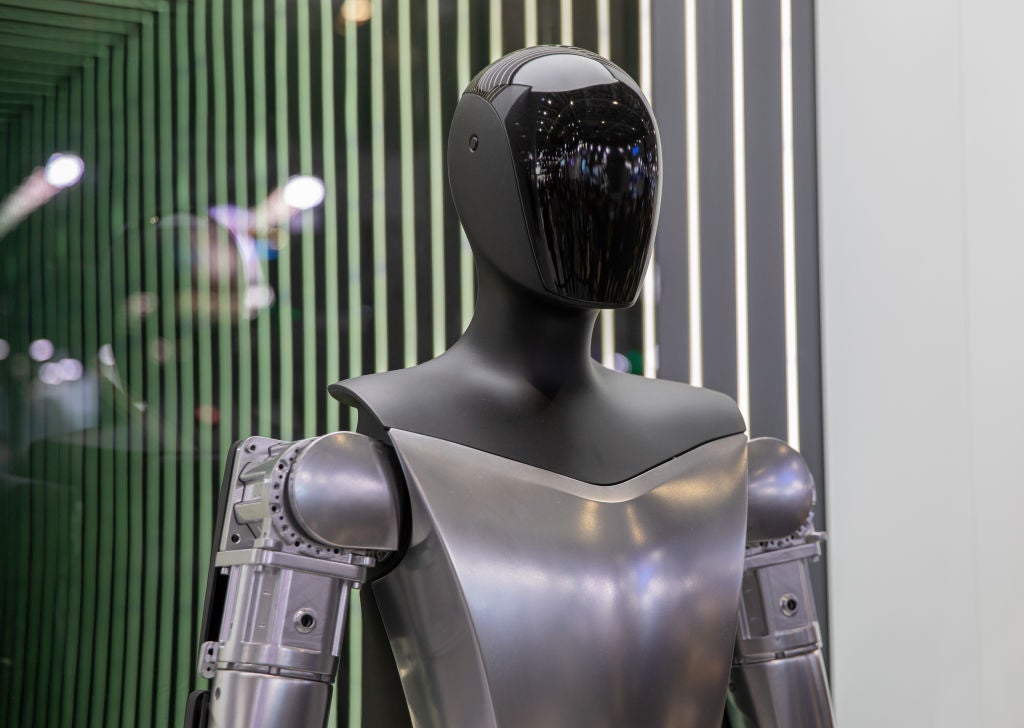
Tesla’s humanoid robot may be ready to sell by the end of 2025, according to CEO Elon Musk on Tuesday (23 April), as the billionaire looks to impress stakeholders.
The announcement comes as several companies have been banking on the future of humanoid robots to address labour demands and boost efficiency through repetitive tasks.

Access deeper industry intelligence
Experience unmatched clarity with a single platform that combines unique data, AI, and human expertise.
Talking on a call to investors, Musk said that he guessed the Tesla robot, named Optimus, would be able to perform tasks in the factory by the end of 2024.
Companies such as Hyundai Motor’s Boston Dynamics and Japan’s Honda have been developing humanoid robots for several years.
Boston Dynamics’ leading humanoid robot, Atlas, is able to demonstrate “advanced athletics and agility” through “decades of research and development”, the company said.
Last week, Boston Dynamics unveiled an electric platform for Atlas and released footage of the robot standing and walking from a lying-down position.

US Tariffs are shifting - will you react or anticipate?
Don’t let policy changes catch you off guard. Stay proactive with real-time data and expert analysis.
By GlobalDataMusk previously said that he believes robot sales could make up a larger percentage of Tesla’s sales than other products, including its cars.
“I think Tesla is best positioned of any humanoid robot maker to be able to reach volume production with efficient inference on the robot itself,” Musk said on the call.
Tesla’s Optimus, which was called Bumblebee at the time, was first unveiled in September 2022.
At the beginning of 2024, Tesla released a video of its second-generation robot folding a T-shirt.
According to research and analysis company GlobalData, the overall robotics market will be worth $218bn by 2030.
Isabel Al-Dhahir, senior analyst at GlobalData, said: “Advances in AI have enabled the development of robots, allowing them to become highly complex products rather than the stand-alone, fixed-function machines they used to be.
“This, in turn, has increased the number of roles that robots can perform. Cloud computing is central to this development to enable sensing, computation and memory to be managed more rapidly, securely and at scale.”







